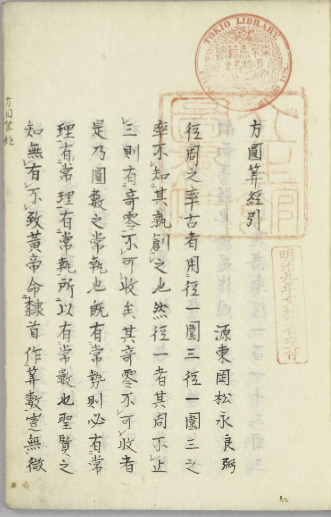私は、エヴァンゲリオンというものが良く分かっていませんが、
I don't really know what Evangelion is, though,
この歌を「良い」と思って頂いた皆さんには、是非、小説「さよならジュピター」を読んで頂きたいのです。
I invite everyone who thinks this song is ‘good’ to read the novel "Byebye Jupiter."
-----
上巻はがんばって、読みきって下さい。
Good luck with the upper volume; read it through.
下巻の1/5あたりで、衝撃の事実が判明します。
A shocking revelation appears around 1/5 of the way down the book.
人類の命運に対して、絶望的な戦いに望むエンジニアたちに、"この歌"が捧げられたことを、ご理解頂けると思います。
You will understand that ‘the song’ is dedicated to the engineers who want to fight a desperate battle against the fate of humanity.
ここで、大切なことを申し上げます。
Here, I would like to mention something important.
小説「さよならジュピター」が先です。
Read The novel "Byebye Jupiter" first.
映画「さよならジュピータ」は、その後にして下さい(映画はキャンセルして頂いても構いません)。
After that, watch the movie (or cancel the movie)
-----
今、多くの人が『一番大切なものの為に生きろ』と言います。
Many people now say ‘live for what matters most’.
で、それは、何だと尋ねると、彼らは、"家族"だとか、"恋人"だとか、"友人"だとか、と、言います。
When I asked them what that was, they said ‘family,’ ‘lovers, ' or ‘friends.’
それを聞きながら、私はいつも思っています。
As I listen to them, I always think.
―― うるせえ、馬鹿野郎
"Shut the fuck up, you idiot."
と。
一体、どれだけの人間が『一番大切なもの』を意識して生きていると思っているのか。
How many of us think, 'What matters most in our life’?
私たちは、日々を生きることで精一杯です。『一番大切なもの』など考えて生きるほど余裕はないのです。
We are all too busy living day to day. We don't have enough time to consider ‘what is most important.’
そんなことを語るやつらは、おそらく時間も金も余裕のある、いけすかないインテリ野郎だろう ―― と、最大級の偏見をもって、私は言い放ちます。
I want to say, with the most extraordinary prejudice, that the people who talk about such things are probably obnoxious intellectuals with plenty of time and money to spare.
"人類"とか"社会"とか"愛"とか、そんなものは、どうだっていいのです。
‘Humanity’, ‘society’, ‘love’, and so on, don't matter.
逆に、私たちは、自分の課せられたミッションの為に、命をかけたっていいのです。
On the contrary, we are willing to put our lives on the line for our assigned mission.
-----
この小説の主人公は、"コンマ数パーセント"のために、『最期まで、システムから逃げずに、守りきったエンジニア』です。
The novel's protagonist is an engineer who, for a few tenths of a percent, ‘did not run away from the system, but protected it until the end.’
普通のエンジニアです。
Ordinary engineer.
その普通のエンジニアは、結果として、命を賭して自分の仕事を成し遂げます。
That ordinary engineer, as a result, put his life on the line to get his job done.
その結果、人類が救われたとしても ―― それは単なる"結果"に過ぎません。
Even if humanity saved their life, it is only a ‘result’ for him.
彼にとって、それが"目的"ではないからです。
For him, it is not a ‘goal’.
-----
この小説では、人類を太陽系外に脱出させるため"だけ"に、輸送船の建造をするエンジニアや、その脱出計画を立案し実施するエンジニアも登場します。
The novel also features engineers who build transports ‘just’ to get humans out of the solar system and engineers who develop and implement escape plans.
(ちなみに、私の理想のシステムは、ここで登場する、相互のシステムが自律的に機能する超分散コンピュータです)。
(Incidentally, my ideal system is the super-distributed computer that appears here, in which mutual systems function autonomously.)
彼らのミッションは、選ばれた人を、太陽系外に限られた期間内にできるだけ多く送り出すことでした。
Their mission was to send as many selected people as possible out of the solar system within a limited period.
そこには"自分"は入っていません。
There is no ‘me’ in it.
この小説の中では、彼らの仕事が、"特別"でもなく、"美徳"でもなく、"気高い行為"でもなく、淡々と描かれています。
In this novel, their works are as ‘special,’ ‘virtuous,’ or ‘noble deeds,’ but in a straightforward manner.
私は、「それでいい」し、そして「それがいい」と、思うのです。
I'm ‘okay with it’ and think, ‘That's good.’
可能であれば、私も、そういうエンジニアの人生を生きて、そういうエンジニアとして生涯を終えたいです。
If possible, I would like to live the life of such an engineer and end my life as such an engineer.
# 実際のところは、私は、PC障害くらいで凹んでしまう、ヘタレなエンジニアですけどね。
# In reality, though, I'm a lousy engineer who gets depressed at the slightest PC failure.

